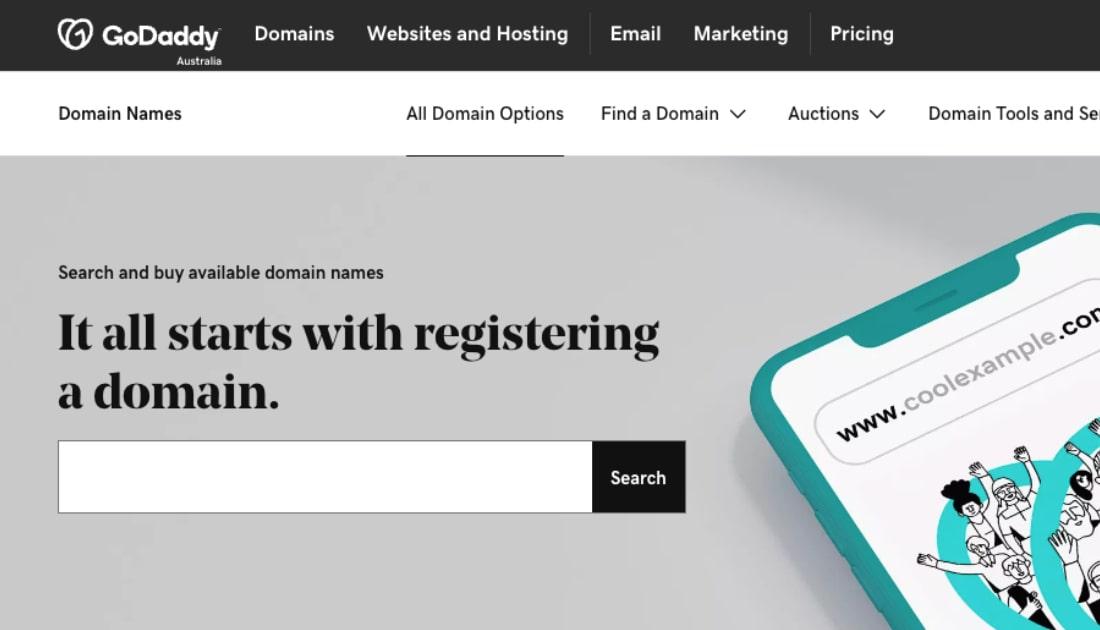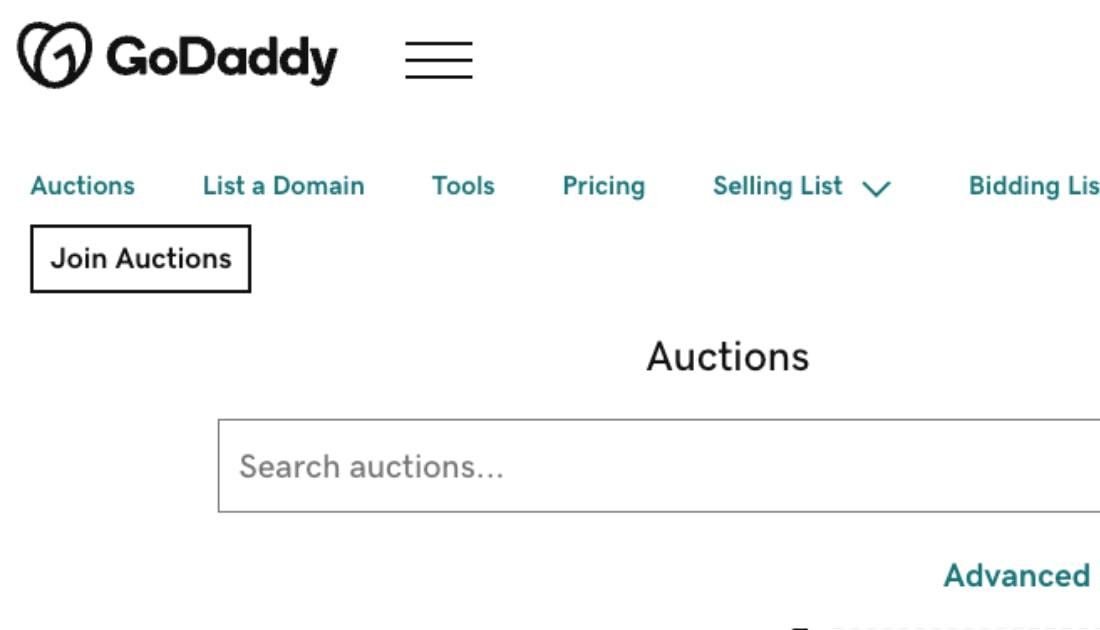If you're shopping for your first domain name, you're probably asking yourself "is a .com domain name better?" The short answer is that a .com domain name is globally recognized, which gives it certain advantages over some other domain name extensions.
But that's not the only factor in play when choosing a domain name. Let's explore the issue of whether a dot com domain is better by looking at the factors in play.
What is a .com domain?
If you want to purchase a domain name, you may have some basic questions about .com and other domain extensions.
In fact, one of the questions you have is probably "what is a domain extension anyway?"
A domain extension is the bit that comes after the dot in a domain name.

The proper name for a domain extension is a top-level domain, or TLD.
The .com domain is just one of many hundreds of TLDs available today.
If you want to learn more about the history of .com domains, you can read this guide.
But in this post, we're going to focus on practical uses of the .com TLD, so let's talk about the advantages of a .com domain.
Get the perfect domain name now
Advantages of a .com domain
One of the early TLDs introduced when the Domain Name System (DNS) was first created in January 1985, .com is a true classic.
- Widely known around the world — most people know the .com extension, which means it adds trust to your website.
- Doesn't tie a website to a particular location — if you're looking to do business in more than one location, then .com provides you with a domain name that will work well in most any market.
- Easy to remember — the fact it's short and well-known means that people are more likely to remember your website's address if it ends with .com, rather than a newer TLD.
Having a .com domain can also be beneficial in case you want to sell the domain name at some point in time.
That may not seem like a huge list of advantages, and it's true that in many cases an alternative domain extension will work just as well as a .com domain. (You may also find there are cheaper domain names than .com.)
For example, there is no inherent search engine optimization (SEO) advantage in going for a .com domain name (despite a persistent myth that there is).
The one drawback to .com
There is one significant disadvantage to opting for a .com domain, and that is its popularity.
You may find that the domain name you want has already been taken on .com.
In such cases, you might have to switch to another domain extension to get the domain name you want.
Just make sure that you aren’t violating any intellectual property such as trademarks when buying your domain).
Related: Comparing the best domain registrars of 2024
Which is better .com or .com.au?

Dot com, .com.au and .au domain names have a great deal of appeal for Australian-based websites, and neither one is inherently better than the other.
If you're planning to focus entirely on the AU market, then you may decide that a .com.au or .au domain suits your needs perfectly.
Equally, if you're planning to attract website visitors/customers from outside the country then you may want to go for a .com domain. Search engines may favour your website over those with other domain extensions when Aussies search online.
It can also be a good idea to buy the .com and the matching .com.au and .au versions of your domain name. That way, you can make sure:
- People searching for you online will find you no matter which extension they type in
- No one else can buy the one you didn't and use it to snaffle away visitors
When you're ready, you can search for a domain name here. Need a little help getting started? Try GoDaddy's free domain name generator.
Related: 8 tips on choosing a domain name for your business
Summing up
Buying a .com domain does offer certain advantages, but you may need to be flexible if you're set on getting a .com domain.
You may also want to buy your domain name across multiple domain extensions in order to protect your brand. If the domain name you want is already taken, our domain lookup tool can help identify the owner's details so you can reach out to them about a potential sale.
Frequently Asked Questions
Still have questions? The answers might be here.
Is it better to use .com or .co?
Although .com is often considered the ‘go-to’ extension, both extensions have merits. Since .com is incredibly common, this could mean that your ideal .com domain has already been taken.
If this is the case, then .co is a great alternative (after .au, that is). Since it’s shorter and sharper, it’s more likely to stay in people’s heads and help them to remember your business.
Should I buy .com, .au and .com.au domains?
Absolutely! Having multiple variations of the same domain name can be hugely beneficial, as it will help your website to appear in both local and international search results.
Because .au and .com.au are associated with Australia, search engines give websites with this extension priority for web searches that originate in Oz.
Even if you don’t want to target a global audience, having all three versions will ensure that people will always end up at your website, regardless of which one they use.
Registering the .au and .com.au domains that match your .com will also prevent anyone else from registering them and potentially using them for malicious purposes.
Is .com still the best?
While no domain extension is ‘the best,’ .com is undoubtedly the world’s favourite, with more than 155 million .com domains registered in total.
Its success can be owed to its simplicity, low cost and the fact that it’s one of the original extensions that was created in 1985, making it a bona fide classic.
What is the advantage of .au and com.au?
The main advantage of .au and .com.au is that they're established domain extensions that are recognized within Australia.
According to auDA, three of five Australian consumers choose websites with .au extensions when shopping online.
Having one or both of these domains tells the world you’re an Aussie business. It could also help boost your ranking in regional search results, as Google frequently prioritises websites with local domain extensions over international sites for searches made from Oz.
Do I need more than one domain name?
Although having multiple domain names costs more than having just one, they can also help strengthen your online presence in multiple ways.
For example, if people often misspell your business name, you could register the incorrect version(s) so that visitors will still arrive at your website, instead of an error page.
You simply direct the misspelled domain names you own to your primary web address.
Having multiple domains can also help boost your overall search ranking and will prevent any competitors from taking them and using them for their own purposes.
You could even use one of your domains as a landing page for your offers or to promote a particular product or service.
What is the .com.au domain used for?
The .com.au domain has mainly been used by Australian companies looking to promote their location within their web addresses. This allows them to target local customers far more effectively than other web extensions.
In 2022, the .au domain extension became available for registration. Those who already owned a .com.au, .net. au or .org.au were given six months to register the matching .au domain name.
In October of that year, all remaining .au domain names were made available for registration by the general public.
What are the advantages of a .com domain?
As one of the original domain extensions, .com has effectively become synonymous with the internet, making it an obvious choice for most businesses.
For example, a person looking online for a business named Joe's Barber Shop will often type in ‘joesbarbershop.com’ on the first try.
On top of that, .com is affordable, easy to remember and can be registered by anyone, no matter what they do or where in the world they’re based.
What is the best domain suffix for a new business?
That depends on your business needs. If you just want a simple web address, then .com should do you fine.
If you plan on selling your products or services online, then a .shop or .store is an excellent choice, as customers will immediately see that you have stuff on offer.
If, however, you want to attract local customers, you could use the official extension for your country or city for your web address.
For example, Sydney has .sydney, London has .london, Barcelona has .barcelona — the list goes on.
Alternatively, you could use a unique extension that highlights your occupation/service like .design, .plumbing or .vet.
For more details on how to pick the right domain extension, check out our article: Which domain extension should I use?
What is a domain extension?
A domain extension is essentially the letters that appear after the second dot in your web address. For example, the extension in GoDaddy.com is .com.
Which domain extension should Oz businesses choose?
As popular as .com is, this domain extension doesn’t say much about your business or services. Some people may even incorrectly equate it with American businesses.
That’s why .au and .com.au domains are generally better for Oz businesses from a branding, marketing and search engine optimisation (SEO) perspective.
If you’re still not sure which one to use, then we recommend registering a bog-standard .com domain, along with a unique domain that promotes your location or services.
Which domain extension is best for SEO – .com. .au or .com.au?
While .com domains are ideal for businesses with a global presence, .au and .com.au domain names have higher search rankings in Australia as they’re associated with Oz businesses.
Search engines strive to deliver the most relevant results to Australian searchers, and they use geographic clues to do this.
That said, it’s worth considering where you expect your business to be in the next few years. If you’re thinking of expanding your operations overseas, then it’s worth investing in a .com domain, as it’ll give you more leeway with your branding.
Does a .com or .com.au domain rank better in the Australia?
One of the most frequent questions we get is “Is .com better than .com.au?” In short, .com.au domains work better for Aussie businesses, since it includes the official country code top-level domain (ccTLD) for Australia.
While .com is by no means a bad choice, .com.au attracts more local traffic as it assures Aussie users that your prices are listed in AUD. After all, when someone searches for services ‘near me,’ they’ll be more inclined to choose a web address that features .au.
How do I decide between a .com and a .com.au domain for my website?
If your services are restricted to the Australia, then you should absolutely use a .au or .com.au domain for your website.
Having one will immediately tell prospective customers that you’re based in Oz, plus it can help you appear higher on local searches.
If, however, you provide international services, then a .com may be better suited to your needs as its high value and authority will lend you more support on search engines.
What is the difference between a .com and a .com.au domain?
The main difference is that .com is a generic top-level domain that suggests you have a universal presence, while .com.au is made specifically for Aussie companies/individuals.
Although .com can be registered by anyone, registering a .com.au web address requires an ABN number.
You should consider which one is better for your needs as it’ll affect your standing on search engines.
How does a .com domain compare to a .com.au for SEO purposes?
The relative SEO value of a .com and .com.au domain depends on a range of factors, and it's important to consider your specific marketing goals and target audience when making a decision.
Both domains have the potential to rank for relevant keywords, but .com domains may have a higher search volume and more competition for high-value keywords.
If you’re targeting a specific region or location, a .com.au domain may be more advantageous, as it can help improve your local search engine ranking.
However, .com domains are effective when targeting international audiences as you won’t be limiting yourself to a particular country or region.
What factors should I consider when choosing between a .com and a .com.au domain?
The main factors you should consider are branding, SEO, cost and availability. While .com domains are better suited for global businesses, .com.au domains are perfect for businesses that sell primarily to Aussies.
However, none of this matters if your domain has already been registered. Check to see if yours is available now by using our domain search function.









